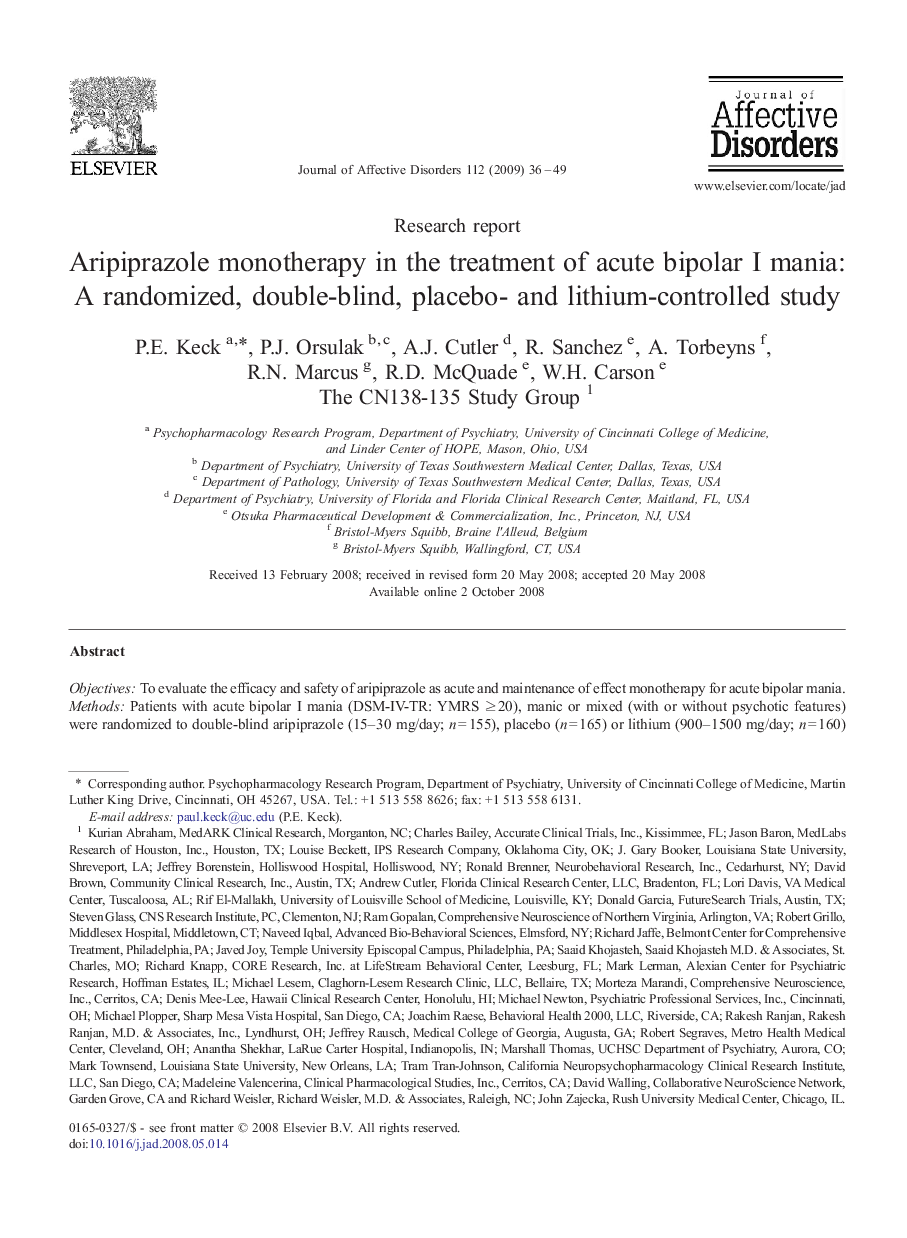| Article ID | Journal | Published Year | Pages | File Type |
|---|---|---|---|---|
| 6236621 | Journal of Affective Disorders | 2009 | 14 Pages |
ObjectivesTo evaluate the efficacy and safety of aripiprazole as acute and maintenance of effect monotherapy for acute bipolar mania.MethodsPatients with acute bipolar I mania (DSM-IV-TR: YMRS â¥Â 20), manic or mixed (with or without psychotic features) were randomized to double-blind aripiprazole (15-30 mg/day; n = 155), placebo (n = 165) or lithium (900-1500 mg/day; n = 160) (1:1:1) for 3 weeks. Aripiprazole- and lithium-treated patients remained on blinded treatment for 9 additional weeks. The primary outcome was the mean change from baseline in YMRS Total score (LOCF) to Week 3. Secondary outcomes included the mean change from baseline in YMRS Total score (LOCF) at all other timepoints up to Week 12.ResultsAripiprazole demonstrated significantly greater improvement than placebo in mean YMRS Total score from baseline to Day 2 (â 4.3 vs.â 2.8; p = 0.003), and up to Week 3 (â 12.6 vs. â 9.0; p < 0.001). Significant improvement in YMRS Total score was also seen with lithium versus placebo at Week 3 (â 12.0 vs. â 9.0; p = 0.005). Improvements in YMRS Total score were maintained to Week 12 for aripiprazole (â 14.5) and lithium (â 12.7). Response rates at Week 3 were significantly higher with aripiprazole (46.8%) and lithium (45.8%) than placebo (34.4%; both p < 0.05, LOCF); increasing to Week 12 with aripiprazole (56.5%) and lithium (49.0%). Most common adverse events with aripiprazole were headache, nausea, akathisia, sedation, and constipation; with lithium were nausea, headache, constipation, and tremor.ConclusionsAripiprazole provided statistically significant improvement of acute mania within 2 days, continuing over 3 weeks and sustained over 12 weeks. The magnitude of improvement to Week 12 was similar with aripiprazole and lithium.
